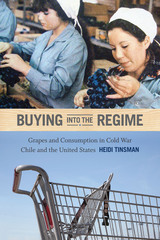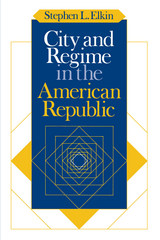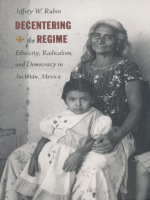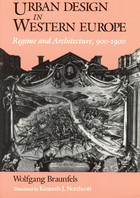4 books about Regime

Buying into the Regime
Grapes and Consumption in Cold War Chile and the United States
Heidi Tinsman
Duke University Press, 2014
Buying into the Regime is a transnational history of how Chilean grapes created new forms of consumption and labor politics in both the United States and Chile. After seizing power in 1973, Augusto Pinochet embraced neoliberalism, transforming Chile’s economy. The country became the world's leading grape exporter. Heidi Tinsman traces the rise of Chile's fruit industry, examining how income from grape production enabled fruit workers, many of whom were women, to buy the commodities—appliances, clothing, cosmetics—flowing into Chile, and how this new consumerism influenced gender relations, as well as pro-democracy movements. Back in the United States, Chilean and U.S. businessmen aggressively marketed grapes as a wholesome snack. At the same time, the United Farm Workers and Chilean solidarity activists led parallel boycotts highlighting the use of pesticides and exploitation of labor in grape production. By the early-twenty-first century, Americans may have been better informed, but they were eating more grapes than ever.
[more]

City and Regime in the American Republic
Stephen L. Elkin
University of Chicago Press, 1987
Stephen L. Elkin deftly combines the empirical and normative strands of political science to make a powerfully original statement about what cities are, can, and should be. Rejecting the idea that two goals of city politics—equality and efficiency—are opposed to one another, Elkin argues that a commercial republic could achieve both. He then takes the unusual step of addressing how the political institutions of the city can help to form the kind of citizenry such a republic needs.
The present workings of American urban political institutions are, Elkin maintains, characterized by a close relationship between politicians and businessmen, a relationship that promotes neither political equality nor effective social problem-solving. Elkin pays particular attention to the issue of land-use in his analysis of these failures of popular control in traditional city politics. Urban political institutions, however, are not just instruments for the dispensing of valued outcomes or devices for social problem-solving—they help to form the citizenry. Our present institutions largely define citizens as interest group adversaries and do little to encourage them to focus on the commercial public interest of the city. Elkin concludes by proposing new institutional arrangements that would be better able to harness the self-interested behavior of individuals for the common good of a commercial republic.
The present workings of American urban political institutions are, Elkin maintains, characterized by a close relationship between politicians and businessmen, a relationship that promotes neither political equality nor effective social problem-solving. Elkin pays particular attention to the issue of land-use in his analysis of these failures of popular control in traditional city politics. Urban political institutions, however, are not just instruments for the dispensing of valued outcomes or devices for social problem-solving—they help to form the citizenry. Our present institutions largely define citizens as interest group adversaries and do little to encourage them to focus on the commercial public interest of the city. Elkin concludes by proposing new institutional arrangements that would be better able to harness the self-interested behavior of individuals for the common good of a commercial republic.
[more]

Decentering the Regime
Ethnicity, Radicalism, and Democracy in Juchitán, Mexico
Jeffrey W. Rubin
Duke University Press, 1997
Since 1989 an indigenous political movement—the Coalition of Workers, Peasants, and Students of the Isthmus (COCEI)—has governed the southern Mexican city of Juchitán. In Decentering the Regime, Jeffrey W. Rubin examines this Zapotec Indian movement and shows how COCEI forged an unprecedented political and cultural path—overcoming oppression in the 1970s to achieve democracy in the 1990s. Rubin traces the history and rise to power of this grassroots movement, and describes a Juchitán that exists in substantial autonomy from the central Mexican government and Mexican nationalism—thereby debunking the notion that a state- and regime-centered approach to power can explain the politics of domination and resistance in Mexico.
Employing an interdisciplinary approach, Rubin shows that the Juchitecos’ ability to organize and sustain a radical political movement grew out of a century-long history of negotiation of political rule. He argues that factors outside the realm of formal politics—such as ethnicity, language, gender, and religion—play an important part in the dynamics of regional political struggles and relationships of power. While offering a detailed view of the Zapotec community and its interactions, Rubin reconceptualizes democracy by considering the question of how meaningful autonomy, self-government, cultural expression, and material well-being can be forged out of violence and repression.
Employing an interdisciplinary approach, Rubin shows that the Juchitecos’ ability to organize and sustain a radical political movement grew out of a century-long history of negotiation of political rule. He argues that factors outside the realm of formal politics—such as ethnicity, language, gender, and religion—play an important part in the dynamics of regional political struggles and relationships of power. While offering a detailed view of the Zapotec community and its interactions, Rubin reconceptualizes democracy by considering the question of how meaningful autonomy, self-government, cultural expression, and material well-being can be forged out of violence and repression.
[more]

Urban Design in Western Europe
Regime and Architecture, 900-1900
Wolfgang Braunfels
University of Chicago Press, 1990
What makes a city endure and prosper? In this masterful survey of a thousand years of urban architecture, Wolfgang Braunfels identified certain themes common to cities as different as Siena and London, Munich and Venice. Most important is an architecture that expresses the city's personality and most particularly its political personality. Braunfels describes and classifies scores of cities—cathedral cities, city-state, maritime cities, imperial cities—and examines the links between their political and architectural histories. Lavishly illustrated with city plans, bird's-eye views, early renderings, and modern photographs, this book will delight and instruct architects, urban planners, historians, and travelers.
[more]
READERS
Browse our collection.
PUBLISHERS
See BiblioVault's publisher services.
STUDENT SERVICES
Files for college accessibility offices.
UChicago Accessibility Resources
home | accessibility | search | about | contact us
BiblioVault ® 2001 - 2024
The University of Chicago Press









